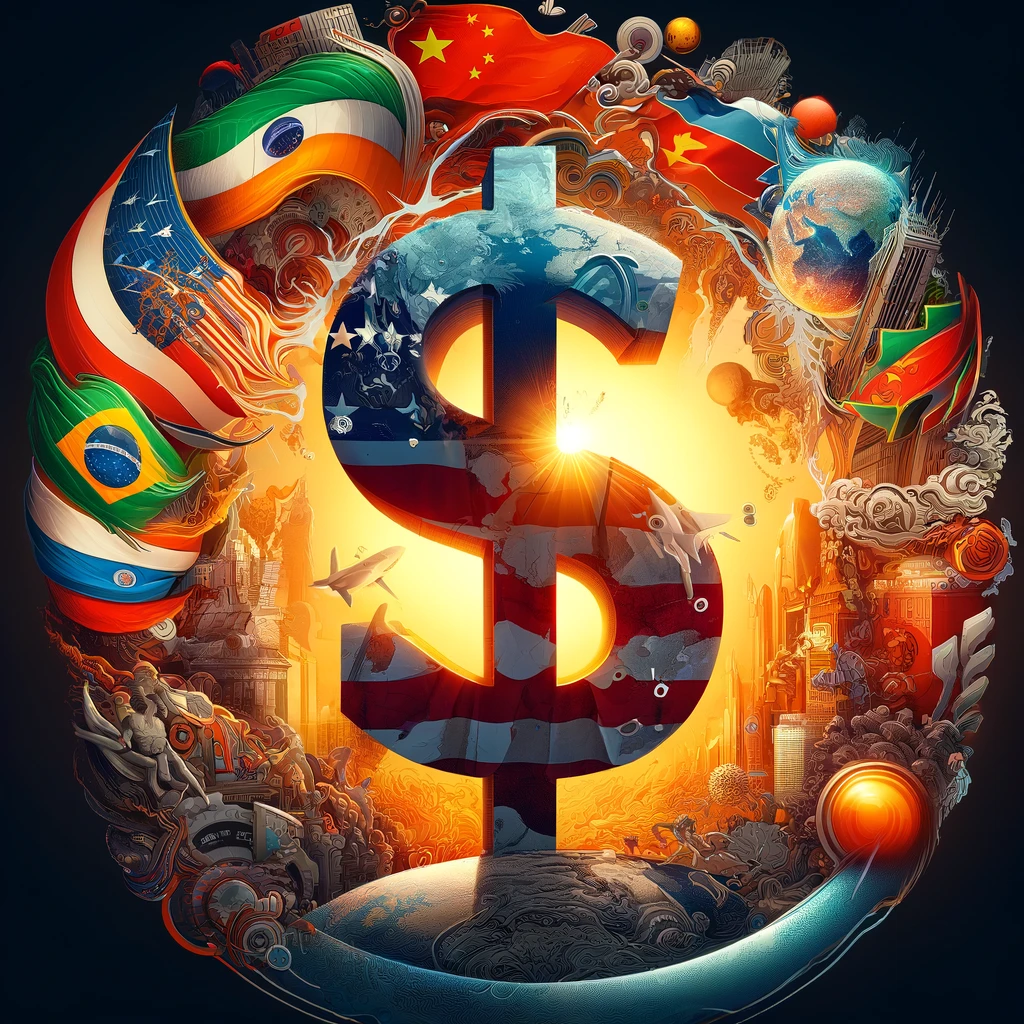It is not a hidden fact that the BRICS nations are on a mission to dramatically change our global economic balance. Their goal is to end the reign of the U.S. dollar as the king of international trade. By making trades in their local currencies, they plan to boost their own economies and reduce reliance on the dollar. And what’s more, there is a worldwide campaign to convince all other countries to join them.
The BRICS’ success is expected to hit the U.S. economy in several ways, potentially leading to market declines over the next few years. If BRICS completely ditches the dollar, an influx of the currency could flood back into America, sparking hyperinflation.
Three major U.S. sectors would bear the brunt of this shift: banking and finance, technology and fintech, and consumer goods and retail.
A Triple Threat
When it comes to banking and finance, the decreased demand for the dollar would mean trouble. Forex markets depend entirely on the flow of currencies, and a dip in demand for the dollar could make it tough for the Federal Reserve to manage the currency’s value. Without the usual demand from BRICS nations’ central banks, the U.S. might see its dollars coming back home, potentially leading to hyperinflation.
The technology industry could also suffer. Inflation can lead to job cuts and force companies to spend more just to keep their doors open. If BRICS countries turn their back on the dollar, American tech is going to be facing so many challenges.
As for consumer goods and retail, the everyday impact would be devastating. Inflation could cause prices to soar, making purchases more expensive for regular Americans. This situation calls for quick action from U.S. to mitigate the fallout and safeguard the dollar’s value. If it can I mean.
Larry Fink, CEO of BlackRock, actually just expressed his concerns on the U.S.’s ongoing debt crisis, suggesting it could be the end of the dollar’s dominance. With U.S. debt reaching a shocking $34 trillion, things aren’t really looking good for the “greatest country on earth.” Central Banks globally have already started diversifying away from the dollar, with majority turning to gold as a safer bet. Smart, no?
Fink emphasizes the urgency of the situation, saying that America’s high debt levels make it difficult to fight inflation without making the debt problem worse. Yikes!
Beyond the Dollar
Ah, of course. The BRICS currency.
This highly-anticipated currency would offer numerous benefits, like more efficient transactions and increased financial inclusion. By utilizing blockchain technology, a BRICS currency would definitely reshape the global financial system.
This would affect the U.S.’s influence globally and challenge the dollar’s status as the primary reserve currency. It would also encourage other regions to create their own currencies, further shaking the dollar’s dominance.
Doesn’t that sound wonderful?
The dollar has long been the go-to for international trade and oil transactions. However, its share of global reserves is shrinking as other currencies gain ground. A successful BRICS currency could accelerate de-dollarization, potentially undermining the power of U.S. sanctions and leading to a decline in the dollar’s value.
Investors and sectors across the U.S. economy, from oil and gas to technology and tourism, would need to adjust to this new reality. The BRICS are coming, and they would alter trading patterns, disrupt market volatility, and necessitate a strategic rethink for investors.
Ready or not, it’s happening!





